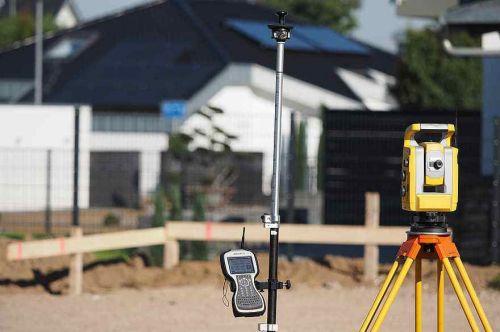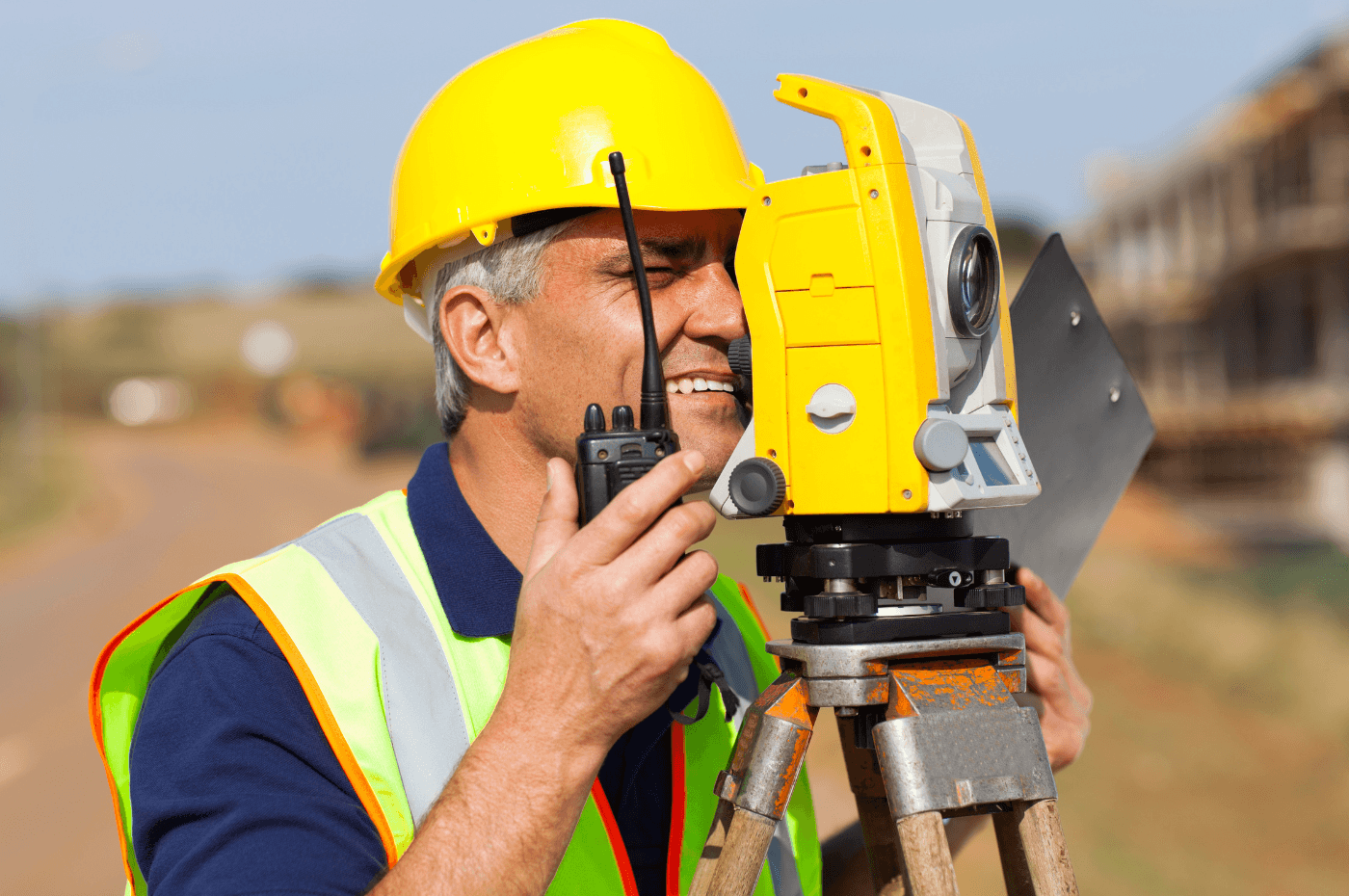Realtors, mortgage brokers, and notaries are well known for guiding you through the process of buying or selling a home. However, a land surveyor also plays a crucial, often overlooked, role in property transactions.
While land surveyors are commonly associated with the construction of roads and infrastructure, their expertise extends to real estate. They can verify whether a property complies with regulations and boundaries. For prospective homeowners, a land surveyor’s findings can significantly influence the decision to move forward with a purchase.
What is the role of a land surveyor in real estate?
A land surveyor is an expert in geographic data and property boundaries, using advanced tools and techniques to carry out their work.
In Quebec, all operations related to surveying are exclusively reserved for this profession under the Land Surveyors Act.
It is mandatory to undergo prior training and join the Ordre des arpenteurs-géomètres du Québec (OAGQ) in order to offer services. The Bachelor's degree in Geomatics Science from Université Laval is, in fact, the only program in the province that allows one to obtain a practice permit in this field.

Land surveyors can be hired for residential construction projects to ensure that proposed work adheres to property boundaries. They also provide valuable expertise in legal disputes, such as expropriation or boundary conflicts with neighbours.
In real estate transactions, their role is to verify that the property and its land comply with municipal regulations. As the only professionals qualified to physically assess the property in relation to city standards, land surveyors play a critical role in ensuring compliance and protecting buyers and sellers.
What are the services of a land surveyor?
A land surveyor performs a wide range of tasks related to the surveying of public and private properties. Their expertise encompasses various specialized operations, including:
-
Geodesy: measuring and understanding the Earth’s shape and dimensions.
-
Topometry: detailed measurement of land and its features.
-
Photogrammetry: using photographs to measure and map land.
-
Boundary marking: permanently and irrevocably establishing the dividing line between two adjacent properties using markers.
-
Staking: defining property boundaries using benchmarks to express their professional option on land limits.
-
Technical descriptions: providing detailed reports on property characteristics.
-
Cadastral operations: creating and updating the cadastre, a state registry that identifies and represents land parcels with unique identifiers.
-
Implantation: determining the precise location for a future construction project
-
Subdivision and land use planning: assisting in dividing land into parcel and planning its development.
In the context of real estate transactions, the land surveyor’s role is critical, particularly in the preparation of a key document: the location certificate, which is essential for the sale process.

The location certificate
Producing a location certificate requires extensive analysis. The land surveyor must assess the physical state of the property and identify any legal factors that could limit the owner’s rights.
The land surveyor conducts a land survey by measuring the property’s dimensions, angles, and area. They also examine and record the position of the house and any outbuildings or features, such as hedges, fences, sheds, or swimming pools.
The land surveyor also verifies:
-
Cadastral identification: confirming the property is accurately identified in the Land Registry.
-
Easements and right of way: checking for legal rights that might allow others access to or use of the property.
-
Encroachments: determining if the property encroaches on a neighbour's land or if the reverse is true.
-
Risk zones: assessing whether the property lies in a designated risk area or shoreline protection zone.
-
Compliance: ensuring the property adheres to municipal by-laws.
After gathering all necessary data, the land surveyor compiles a report summarizing their findings. Additionally, a draftsman creates a detailed plan based on the surveyor's observations. Together, the report and plan form the complete location certificate, a crucial document in real estate transactions.
When to use the services of a land surveyor?
While there is not a fixed timeline for hiring a land surveyor, the location certificate they produce must be reviewed by a notary at least 20 days before the signing of the bill of sale.
For sellers, it is advisable to engage a land surveyor early in the process—ideally as soon as you begin preparing to put your property on the market. Having the location certificate ready in advance ensures there is no unnecessary delay during the ownership transfer and allows for a smoother transaction process.

How much does it cost to hire a land surveyor?
The OAGQ’s detailed 2025 suggested pricing guide provides an estimate of the costs for a land surveyor’s services. However, each expert is free to set their own fees, which may be higher or lower than the suggested rates.
If you request it, the land surveyor can provide an estimate of the costs for their services.
For more details, consult our article How much does it cost to hire a land surveyor?
What is the salary of a land surveyor?
Based on a 2022 survey, the average annual salary of a land surveyor in Quebec in 2021 was $116,050, across all job categories.
For professionals at the start of their careers (0 to 4 years of experience), the average annual salary was approximately $70,000.
How to choose a land surveyor?
Selecting the right land surveyor is crucial for ensuring a precise and reliable location certificate. Here are key criteria to help you choose the best expert for your building project:
We suggest considering the location of your property and the area where the surveyor typically operates. It’s best to choose a professional who is already familiar with the specifications and regulations of your region.
Here are key qualities to look for when selecting a land surveyor:
-
Significant years of experience.
-
Adherence to deadlines.
-
Clear and precise submissions.
-
Transparency, meticulousness, and strong attention to detail.
Need assistance in your search? Rely on us to connect you with three qualified experts who perfectly match your needs.
Are you looking for a land surveyor?
XpertSource.com can help you find a land surveyor. When you tell us about your project, we put you in touch with qualified resources for FREE. Simply fill out our form ( it only takes a few minutes ) and we will connect you with professionals.

